Launched at the end of 2021 for a period of two years and nine months, the project funded by Reforest'Action in Taza, Morocco, is being carried out in the field by the High Atlas Foundation (HAF) in collaboration with Morocco's National Water and Forestry Agency. The first season of the project involved the creation of a huge one-and-a-half-hectare nursery. On site, the Bouhlou nursery, built entirely for the needs of the project, has produced over 200,000 seedlings of diversified fruit tree species. Since the beginning of 2023, the project has entered the second stage of its implementation: the planting of the saplings on farmers' land and within the region's schools.
Spanning almost three years, the project's final objective is the nursery production and distribution of 400,000 fruit trees to 3,000 cereal farmers. These trees will be planted in agroforestry, on land degraded by the monospecific growing of barley and corn, with the aim of regenerating agricultural ecosystems and reviving sustainable arboriculture.
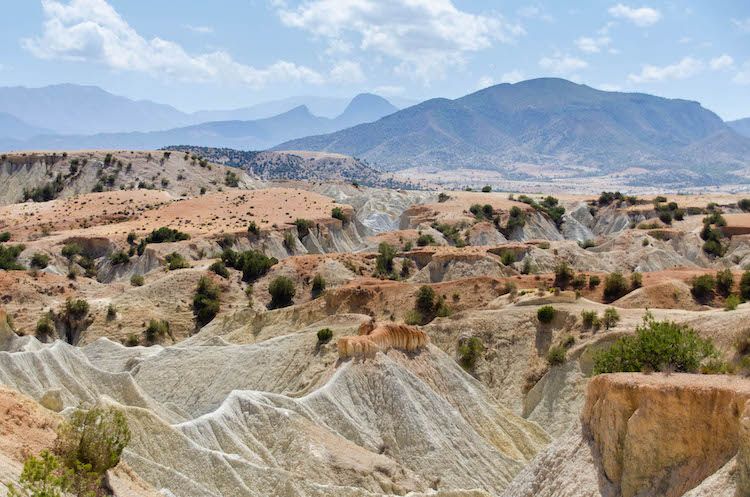
A fragile climatic and social context
Taza is located in northeastern Morocco, where the Rif and Middle Atlas mountain ranges meet. Northern Morocco is particularly exposed to climate change, which is causing more frequent and longer periods of drought, weakening water resources, and undermining natural ecosystems. The region's degraded soils are even more exposed to erosion during heavy rains, leading to recurrent flooding.
Cereal farming, which covers 60%* of the country's agricultural land, is particularly sensitive to the drop in rainfall in recent years. Less vulnerable to climatic hazards, arboriculture is Morocco's second largest agricultural sector, accounting for 16%* of cultivated land. Although there are many orchards around Taza, they are very old and their production is now declining.
Agriculture is of great economic and social importance in Morocco, representing 38%* of national employment and over 70%* in rural areas. This is why the growing vulnerability of agriculture in the face of climate change has a direct impact on the economic and food security of populations. In mountainous areas, Moroccan rural communities already face systemic poverty, accentuated by illiteracy and lack of access to modern technologies, agriculture being their only means of subsistence.
*Source: Ministry of Economy and Finance, Kingdom of Morocco, 2019
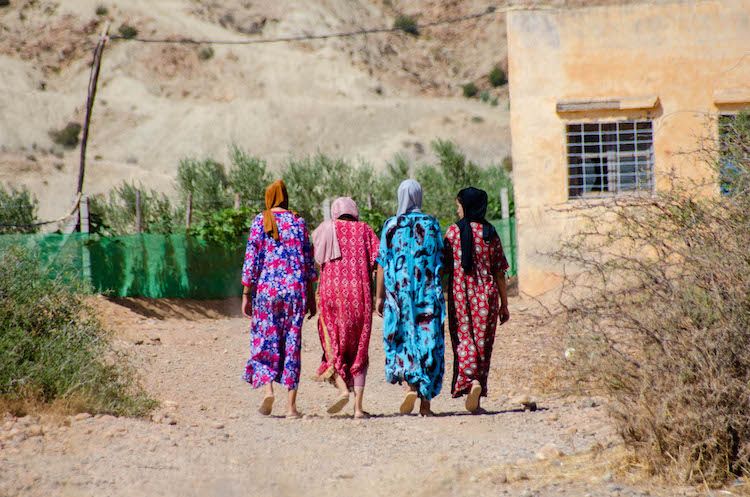
A project in line with the country's strategy
Supported by Taza Regional Water and Forestry Department, the project is part of Morocco's new forestry strategy (Forêt du Maroc 2020-2030). The latter encourages the planting of trees on state-owned land by cooperatives or associations. In response to the social impact of climate change, the government is also encouraging the integration of fruit trees into agricultural sectors and promoting the rational use of water and inputs.
The project implemented in Taza, which aims to develop arboriculture on cultivated land, is therefore helping both Morocco's government to meet its strategic objectives, and to receive support from locally based government institutions. The benefits are mutual.
Nursery construction and seedling production
On the field, the project began in January 2022 with the construction of a huge nursery to host the future fruit trees. None existed in the province of Taza. Today, the Bouhlou nursery covers an area of one and a half hectares, within a former olive tree nursery.
Launching such a nursery required mobilizing a dedicated team of experts and carrying out major works: digging a well, building an equipment room, installing solar panels, erecting a fence and so on. The next step was to prepare the seedlings and cuttings, then maintain the saplings to ensure their growth (watering, treatment, weeding, grafting). Over 310,000 fig, pomegranate, almond, walnut, carob and cherry seeds were grown using organic products.
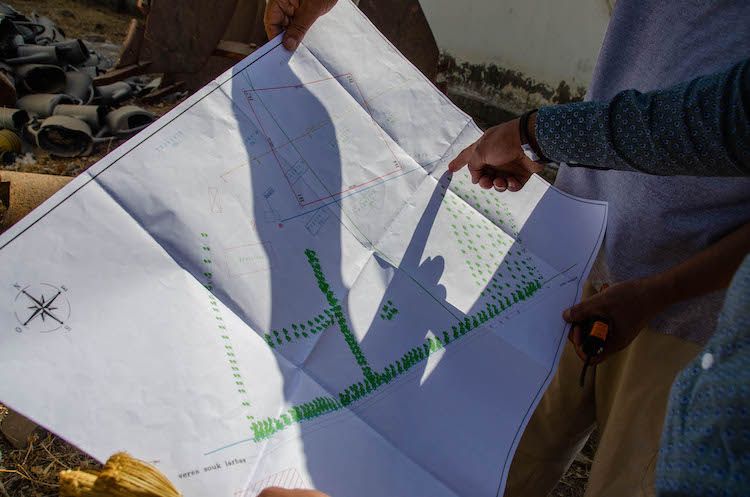
After twelve months of shared work between HAF members and the inhabitants of the Bouhlou village, 202,800 trees are now ready to be planted in the coming season. The success rate compared with the initial target is 101.4%. The additional 1.4% will be used to replace trees that do not survive the hot weather.
The farmers who will benefit from the trees have been involved in this first phase of implementation, helping to select the most suitable species for the region's climate. There is already a strong demand for the trees, particularly for carob seedlings, which are highly profitable. The tree requires little maintenance and is drought-resistant, and its fruit can be sold for over 50 dirhams (around €4.70) a kilo. Farmers' interest in the project is a very encouraging sign.
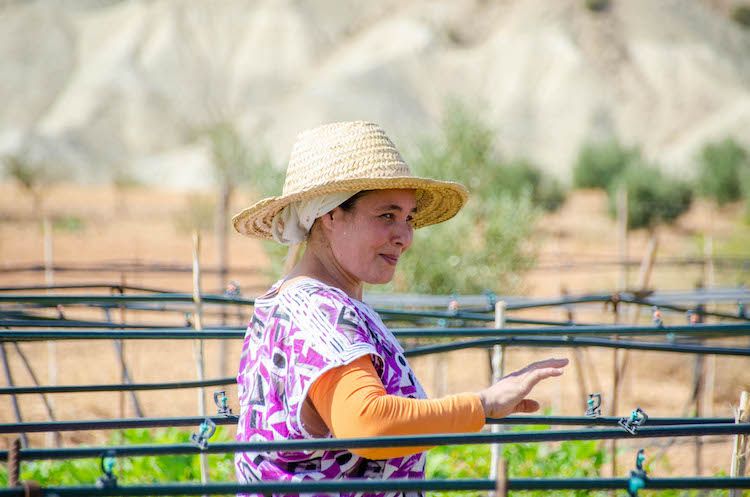
Measurable socio-economic impacts
The project targets are of three types: local farmers, environmental protection associations and children from nearby schools. Since the start of operations, these different groups have been informed of the existence of the project and the benefits of agroforestry planting.
Positive socio-economic impacts are already visible. The construction and management of the Bouhlou tree nursery has created thousands of working days for 50 local families. What's more, providing jobs for young people who are old enough to work is helping to counter the rural exodus that is tearing more and more Moroccan families apart. Outside the area covered, the project has contributed to income generation through the purchase of equipment, seeds, and other services from local businesses.
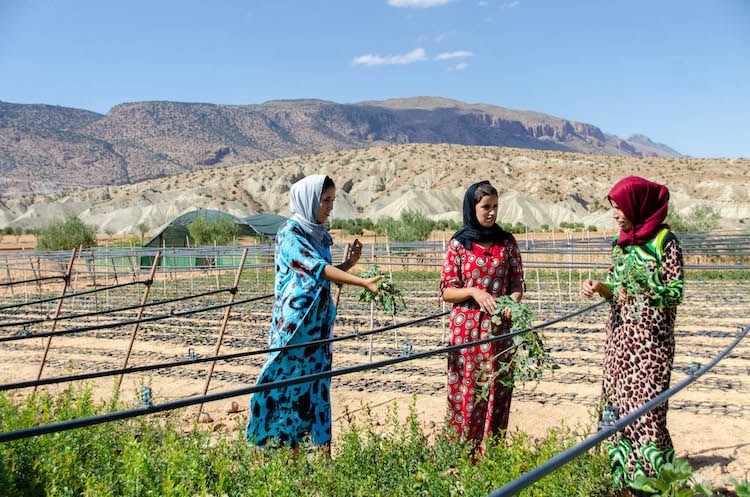
Before farmers benefit from the trees, HAF and the Water and Forestry Agency conduct training workshops in sustainable agriculture, encouraging farmers to organize themselves into cooperatives in order to facilitate their access to markets.
Integrating women's communities
HAF supports local communities in implementing development initiatives that promote women's autonomy. The project in Taza aims to support women's communities towards greater self-sufficiency. During this first season, they took part in the planting and maintenance of carob seedlings and were able to develop specific know-how while gaining financial independence.
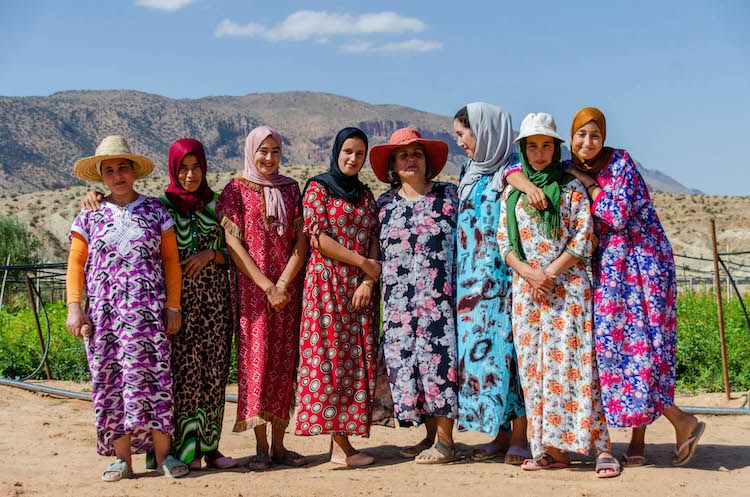
Raising awareness among young people
The educational aspect was a prime objective of this first season. HAF organized regular awareness-raising sessions with local schools. During several visits to the nursery, pupils and their teachers learned about the project, the stages of tree development, the need for trees in the ecological balance, and the importance of protecting them. Five partner schools with more than 100 pupils will receive some of the trees in 2023 and will be able to integrate them into their facilities.
Towards the creation of orchards: a promising continuation
The second phase of the project has been underway since the beginning of 2023. It consists of distributing trees from the Bouhlou nursery to farmers who wish to plant them within their crops, with the objective of creating agroforestry orchards. Planting fruit trees in agroforestry will enable the regeneration of ecosystems degraded by conventional agriculture. Many socio-environmental benefits will result.
Increased vegetation cover will protect agricultural soils against water and wind erosion, increase their fertility, improve water retention, and reduce airborne dust levels, which can be significant in the region. In addition, the native species chosen, such as the fig tree that characterizes the pre-Rif and Rif environments, will ensure the survival of ancestral fruit varieties and the preservation of native biodiversity.
The planting and maintenance of the trees will provide more jobs for local people, and later, the harvesting and marketing of the fruit will represent important employment opportunities. The average annual production of 200,000 seedlings in the nursery will guarantee the planting of 1,000 hectares annually and contribute to the generation of over 2 million dirhams for farmers' families.
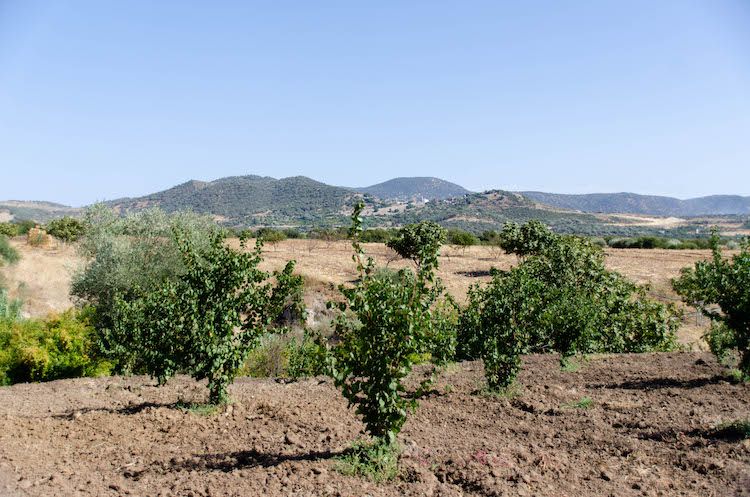
Obtaining organic certification
One of the main obstacles to the project is the lack of markets for tree products. In the future, it is intended that the project will obtain organic certification, from nursery production to fruit cultivation. From the third year onwards, organic fruit production will be assured thanks to the partnership between HAF and the American humanitarian agency USAID. Local and international experts will then support the creation of local cooperatives to add value to organically grown fruits and facilitate their sale on markets.